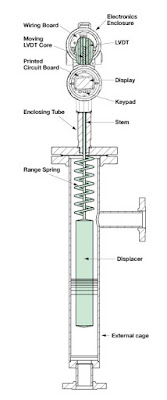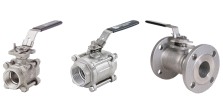 |
| New HRS Series Electric Valve Actuators Courtesy Hayward Flow Control |
The new HRS line provides practical features and benefits to users.
- Product torque range from 300 in-lb to 177,000 in-lb
- Aluminum housing with powder coat
- Double square drive socket, ISO5211 compliant mounting
- On/Off or Proportional Control with 2-10 vdc or 4-20 ma inputs and outputs
- NEMA 4/4X/IP67 enclosure rating
- Range of available AC and DC voltages
- Integrated local control station
- Visual position indicators
- CSA Certified, UL439
- Two Year Warranty
There are numerous variants that can be configured using base models and available options. For more detail, contact a product specialist. Share your fluid process control challenges with them, combining your process knowledge with their product application expertise to produce the most effective solutions.





